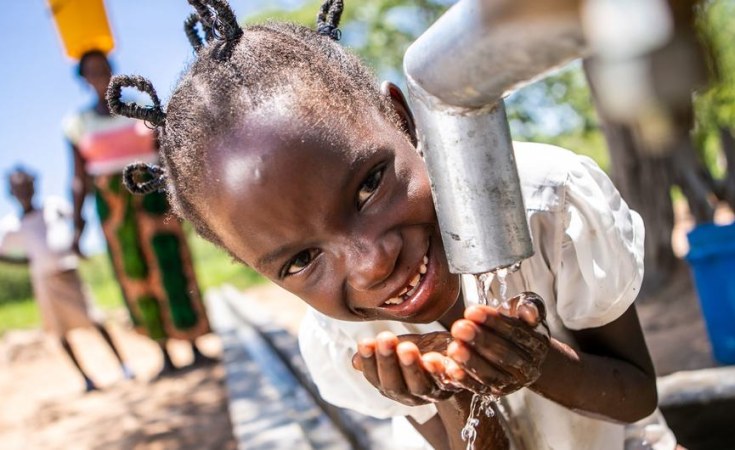The UN Children's Fund (UNICEF) released a new report on Thursday that highlights alarming levels of child food poverty due to inequity, conflict, and climate crises.
The report warned that millions of children under five have difficulty accessing nutritious and diverse diets necessary for developmental growth and that food prices and living costs have hit record-high levels as countries continue to recover from the impacts of the COVID-19 pandemic.
UNICEF Nutrition Specialist, Harriet Torlesse - who was also a lead writer on the report - said one in four children globally are surviving on extremely poor diets, consuming just two or fewer of the major food groups.
"So, for a child in Afghanistan, for example, that's just some bread or perhaps a milk in the whole day, and almost certainly no vegetables and fruits and no good sources of protein," she told UN News ahead of the launch. "And this is very troubling because these children cannot survive in such poor diets."
Millions affected worldwide
The report found that 65 per cent of the 181 million children worldwide experiencing child food poverty reside in 20 countries - about 64 million are in South Asia and 59 million are in Sub-Saharan Africa.
Even further, nearly half of all cases are linked to households where income poverty is prominent.
However, many other factors fuel this crisis including, "food systems that fail to provide children with nutritious, safe and accessible options, families' inability to afford nutritious foods, and parent's inability to adopt and sustain positive child feeding practices."
'Horrific impact' of Gaza conflict
More than half of children in Somalia experience child food poverty amid conflict and natural disasters.
Similarly in Gaza, nine out of 10 children are dealing with high levels of food poverty as fighting continues.
"This is evidence of the horrific impact the conflict and restrictions are having on families' ability to meet children's food needs - and the speed at which it places children at risk of life-threatening malnutrition," the report stated.
However, it noted that other countries dealing with their own crises, like Burkina Faso, significantly reduced their levels of child food poverty. Burkina Faso has halved the number of cases there.
"It shows that with the right type of action, countries can make progress, including low-income countries," Ms. Torlesse said. "[These countries] have all made a deliberate effort to improve the supply of local nutritious foods, be it pulses or vegetables or poultry."
Appeal to governments
UNICEF appealed for action to make nutritious foods more accessible for young children, activate social protection systems to address income poverty, and leverage health systems to deliver necessary nutrition services to assist children.
"UNICEF is calling on all governments development and humanitarian partners to act now to prioritize actions to end child food poverty," Ms. Torlesse said. "We must position the elimination of child food poverty as a policy imperative, particularly to achieve the sustainable development goals of malnutrition."
She said it is also important for health systems to be strengthened so that they can advise and support families on how to feed their children.
"There's no reason why children should grow up in child food poverty," Ms. Torlesse said. "Not when we know the consequences for children's abilities to grow and thrive, and especially not when we have the solutions and we know what works."


